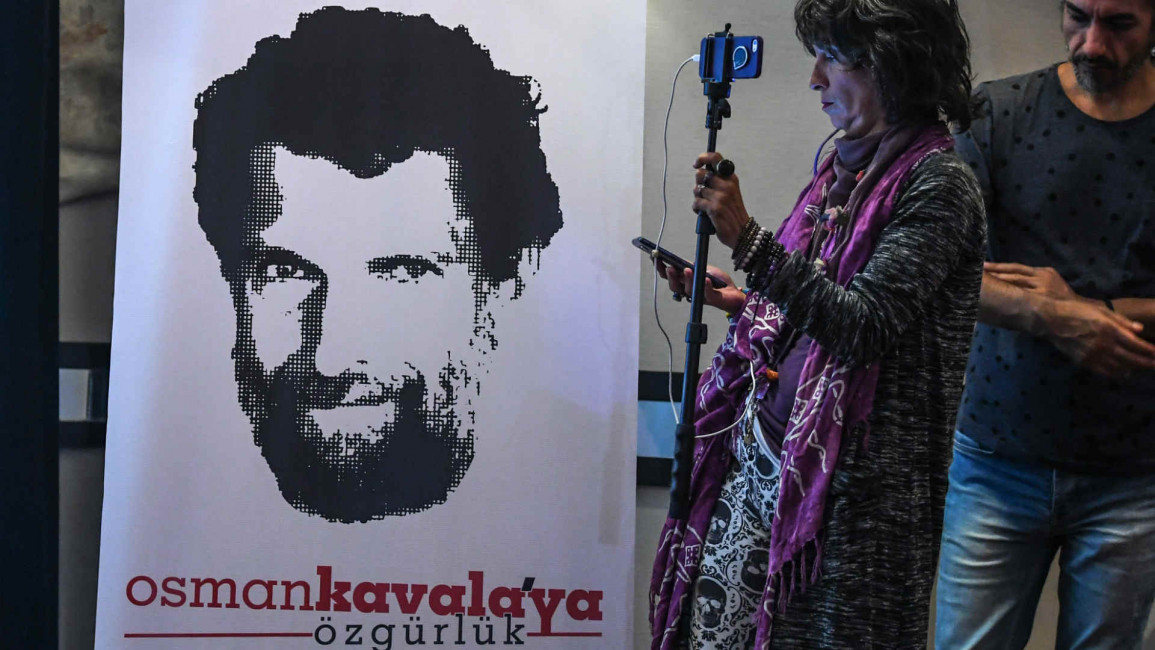Turkish court rules civil society leader to stay in jail over 'bogus' charges
The trial against 16 defendants accused of attempting to "overthrow the government" through organising and funding an uprising began on Monday.
Among the defendants is Osman Kavala, a prominent businessman, civil society figure and philanthropist, who was remanded in jail.
The court released a second defendant, civil society worker Yigit Aksakoglu, on Tuesday.
Kavala was arrested in 2017, dubbed by President Recep Tayyip Erdogan as Turkey's "red Soros" and a "shady tycoon" with links to terrorists. Aksakoglu was arrested in November last year.
Other defendants include critical journalist Can Dundar; actor Memet Ali Alabora; and Cigdem Mater Utku, representative of George Soros' Open Society Foundation in Turkey. Six of the defendants, including Dundar and Utku, are living abroad.
The indictment calls for life sentences without parole for the defendants, who all deny the charges.
"It is joyful that Aksakoglu is going to be united with his family, while Kavala's detention will continue is saddening. We hope that the court will compensate it during next hearing," lawyer Ilkan Koyuncu told Reuters.
The trial has been widely condemned by human rights organisations, who view the legal action as a thinly-veiled attempt to quash future dissent six years after the Gezi Park protests.
The charges against the defendants, including Kavala, are seen by critics as baseless, due to the fact the Gezi Park protests were largely a grassroots movements without any centralised funding or organisation.
Human Rights Watch called the charges "bogus," saying the indictment does not explain how the defendants allegedly planned an uprising or conspired. The group said the aim of the trial was to "silence and punish the defendants for their legitimate and entirely peaceful civic activities and work".
The 2013 demonstrations began as a protest against a plan to turn a park in central Istanbul into a shopping center, but quickly spread across the country, with demonstrators expressing deep dissatisfaction with the government.
Thousands were arrested and 22 people were killed over the course of the protests.
The next hearing of the case is scheduled for mid-July.



